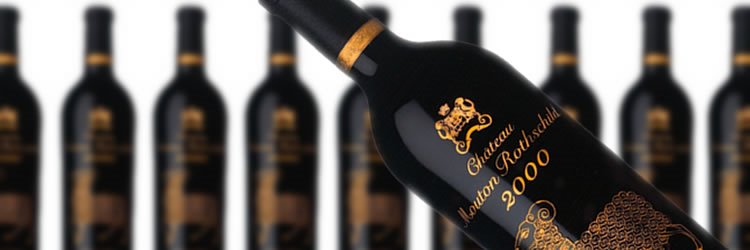 Understanding the principles of wine investment
Understanding the principles of wine investment£10,000 wisely invested in a wine portfolio back in 1974 would currently be worth somewhere in the region of £1.4 million (Financial Times Wine Investment Special, June 2005).
Good Wine Investments: Examples
- 1961 Chateau Latour (100 points by R. Parker) cost just £25 a case when released - today, a case could sell for between £20,000 and £35,000 depending on its provenance. That’s a 140000% increase! (Yes, it is a one hundred forty thousand percent increase)
- 15 years ago the 1990 Cheval Blanc (98 points by R. Parker) was released for under £400 a case - today the wine’s current market price is £4,450. That’s a 1112% increase.
The Wine Market: Overview
99% of the world's wine production is not investment grade wine
Poor quality, over-abundance and early-drinking are factors that make these wines non-investment grade (most of the wines you find in supermarkets and wine shops fall into this category)
Two tier market
- Oversupply of low-end wines
- Inherent shortage in the top segment because of strict zoning laws for the top vineyards
Wine Investment Packages focus exclusively on the top segment that is known as “fine wines”
The Fine Wine Market: Key Facts
Demand/supply imbalance supports prices
- Ever growing demand. There are an ever-increasing number of high net worth collectors who want to own these wines - mainly from America, London, Japan, Singapore and Hong Kong as well as from newer players such as China and Russia.
- Extremely limited supply. There is a very limited supply of about 20 Bordeaux chateaux producing only a combined 345,000 cases (12 bottles per case) of asset-class wine each year. The 1st growth chateaux only produce about 100,000 cases collectively. The production capacity of these chateaux is fixed due to strict zoning laws enacted in 1855 which do not allow the chateaux to increase their vineyard size for the 1st growth wines.
Fine Bordeaux wine is an improving asset in that it becomes more attractive and valuable as it matures. Fine Wines from good vintages generally reach an initial maturity stage after 5 to 10 years and will remain stable or improve further for up to an additional 30 years or more before starting to decline.
Older vintages become rarer with time
As these wines age, they also begin to be consumed, which increases both the scarcity factor and demand, fueling higher and higher prices.
Investment Process
Making your investment
We provide full-service management of all Wine Investment Packages.
Investment security: Ownership, insurance & storage in Bordeaux
The title of the wines that purchases for investors are transferred to the client upon payment. These wines are also insured for replacement value with the client as the beneficiary. Insurance is provided by an international insurance company like AXA. We will provide clients with a statement of accounts for the wines purchased. As part of our services, we offer storage in our state-of-the-art warehouse in Bordeaux. * Fees applicable
It is extremely important to store your wines in professional wine storage facilities in Bordeaux and NOT any other country as the value of these investment wines will drop significantly once they are shipped out of Bordeaux.
Wines stored with merchants or in professional storage in London are usually worth 20-30% less than wines that have never left Bordeaux.
Many of the top auctions houses are very reluctant to accept wines that have been stored in Asia.
Although it is true that there are some very good wine storage facilities in Asia, the perception of the merchants/buyers in the US and Europe is that the quality of the wine cannot be guaranteed once it has been shipped to Asia. Therefore they will avoid wines from Asia if possible. This translates to lower prices and less desirability for wines that have been shipped to Asia.
STORE YOUR INVESTMENT WINES IN BORDEAUX!
Bordeaux vs. London Market
Storage and travel history (provenance) greatly affects wine prices. Wines that have been stored at the chateaux or in professional storage in Bordeaux since the time they were released command the highest prices. Wine that has been shipped out of Bordeaux (e.g. wine sold in the London, US or Asia markets) is worth significantly less. In general, the older the wine, the more of a premium Bordeaux-stored wine will fetch. Bordeaux-stored wine is therefore considered more of an “investment grade” wine than say London-stored wine. Investment wines that are direct from the chateaux/Bordeaux normally achieves a premium of 30% or more (sometimes even more than 100% more).
Here are some examples:
“…(1961 Latour) from Latour’s own cellars at a premium of US$56,400…”
(Financial Times, Sept 2004 hammered at Christie’s auction house)
Compared to a case (1961 Latour) that was stored in London which only fetched US$20,570
(Decanter, June 2005)
Exiting investment
Multiple exit options are available. We will assist clients to sell their wine investments at the current market price. Alternatively clients are also able to use Christie’s, Sotheby’s or any other reputable auction house to sell their investment wines.
Client can exit their investments at anytime as there is NO early exit fees.
Fine Wine has consistently outperformed all other forms of recognised investment. It has remained the steadiest form of investment, generally unaffected by recession, interest rate changes and stock market fluctuations. Fine Wine offers many advantages over other investments - such as unit trusts, life assurance, investment bonds and equities - as it benefits from being stable, tax free, easily reaslisable, consumable, low risk and portable. Above all else, due to decreasing availability, there is increasing rarity.

